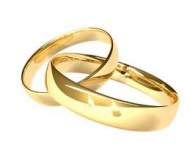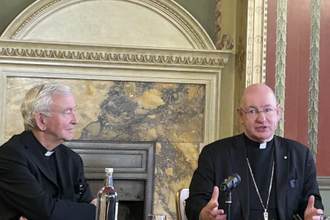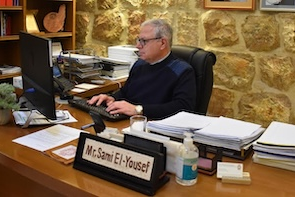Church of England response to government consultation on same-sex marriage

In its submission to the Government consultation on same-sex marriage, which closes on June 14, the Church of England states it cannot support the proposal to enable "all couples, regardless of their gender, to have a civil marriage ceremony".
It adds that the consultation paper wrongly implies that there are two categories of marriage, "civil" and "religious" - "this is to mistake the wedding ceremony for the institution of marriage". Changing the State's understanding of marriage will, therefore, change the way marriage is defined for everybody and, despite the government's assurances to the contrary, will change the nature of marriages solemnized in churches and other places of worship.
The official Church of England submission sent to the Home Secretary under a short covering letter from the Archbishops of Canterbury and York also points out:
Several major elements of the Government's proposals have not been thought through properly and are not legally sound. Ministerial assurances that the freedom of the Churches and other religious organisations would be safeguarded are, though genuine, of limited value given that once the law was changed the key decisions would be for the domestic and European courts.
Such a change would alter the intrinsic nature of marriage as the union of a man and a woman, as enshrined in human institutions throughout history. Marriage benefits society in many ways, not only by promoting mutuality and fidelity, but also by acknowledging an underlying biological complementarity which includes, for many, the possibility of procreation. The law should not seek to define away the underlying, objective, distinctiveness of men and women.
The Church has supported the removal of previous legal and material inequities between heterosexual and same-sex partnerships. To change the nature of marriage for everyone will deliver no obvious additional legal gains to those already now conferred by civil partnerships.
The submission concludes that "imposing for essentially ideological reasons a new meaning on a term as familiar and fundamental as marriage would be deeply unwise".
The full submission can be seen at: www.churchofengland.org/our-views/marriage,-family-and-sexuality-issues/same-sex-marriage.aspx
About a quarter of weddings in England take place in Church of England churches. Marriages in the Church of England increased by four per cent in 2010 to 54,700 compared to 52,730 in 2009, the biggest increase in any one year over the last 10 years; services of prayer and dedication also rose by two per cent to 4,020, up from 3,940.


















